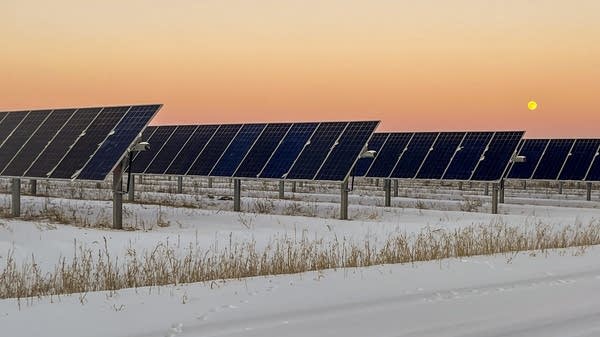Minnesota House passes bill requiring carbon-free electricity by 2040

Go Deeper.
Create an account or log in to save stories.
Like this?
Thanks for liking this story! We have added it to a list of your favorite stories.
Updated: 8:15 a.m.
The Minnesota House of Representatives passed a landmark bill Thursday night requiring the state’s electric utilities to get all of their electricity from carbon-free sources by 2040.
The bill passed on a 70 to 60 vote after more than seven hours of debate. A companion bill also passed out of a Senate committee this week, and could go before the full Senate for a vote as soon as next week.
The carbon-free electricity requirement is one of the top priorities for the DFL-controlled Legislature to address climate change, and has the support of Gov. Tim Walz.
Its House author, DFL Majority Leader Jamie Long of Minneapolis, called it “the most important action that we’ve taken as a state to date to address climate change.” He said it will make Minnesota a national leader in clean energy, and create jobs.
Turn Up Your Support
MPR News helps you turn down the noise and build shared understanding. Turn up your support for this public resource and keep trusted journalism accessible to all.

“We know that this is going to be good news for Minnesotans,” Long said during a news conference before the vote. “It’s going to save Minnesotans money, because right now wind is the cheapest energy you can buy, and solar will be cheaper than wind within a few years.”
Republican lawmakers said the mandate will lead to higher electricity bills, grid reliability issues and possible power outages.
“This ‘blackout bill’ is going to make energy unreliable, unsafe and even dangerous,” said House Minority Leader Lisa Demuth, R-Cold Spring. “Energy needs to be safe. We need it in Minnesota to be reliable, and this is neither.”
Under the bill, utilities would need to increase the amount of their electricity that’s generated from renewable energy sources — such as wind, solar, hydropower and biomass — to 55 percent by 2035.
The bill also sets a series of benchmarks utilities would be required to meet, culminating with 100 percent of their electricity coming from completely carbon-free sources by 2040.
It would require them to move away from generating or buying electricity generated from sources that produce carbon dioxide, including coal and natural gas.
The bill speeds up by a decade the date by which the state’s largest electric utilities, including Xcel Energy and Minnesota Power, have pledged to be carbon-free.
The bill does include “off ramps” for utilities if they demonstrate to state regulators that they can’t meet the benchmarks while maintaining affordable and reliable power.
It also gives utilities the option of buying renewable energy credits to meet the standard, instead of buying or producing the energy directly.
GOP legislators proposed a number of failed amendments to the bill, including measures to make the mandate voluntary for electric cooperatives, who have expressed concerns about meeting the deadline.
They also proposed, without success, lifting the moratorium on new nuclear energy plants, including new smaller modular technology, and to support technology that captures and sequesters carbon dioxide.

Republicans also referred to action by the Biden administration on Thursday to ban mining on land near the Boundary Waters Canoe Area Wilderness for 20 years. They said not allowing the mining of materials needed for solar panels and wind turbines, such as copper and nickel, means they’ll be mined in overseas countries that use child labor and have few environmental regulations.
“You’re saying, ‘Yep, we want the product, we’re going to create the demand, but we’re not going to allow that product to be mined right here in our backyards, in the place of the world where we have the highest environmental standards in the world,’ ” said Rep. Kurt Daudt, R-Crown.
Backers called the bill the most significant action on climate change in Minnesota since 2007, when the Legislature passed renewable energy standards requiring that most utilities get 25 percent of their energy from renewable sources by 2025.
Minnesota reached that goal by 2018, seven years ahead of schedule.
Former state Sen. Ellen Anderson, who’s now the climate program director with the nonprofit Minnesota Center for Environmental Advocacy, helped pass the 2007 law. She said back then, many thought the state couldn’t achieve the standards.
“Since then, we have really proven that the skeptics were wrong,” Anderson said. “Renewable energy since that time has now saved billions of dollars for Minnesota energy customers, and brought health and environmental benefits and thousands of clean energy jobs to our state.”
Top leaders in North Dakota, which produces power from coal and natural gas, are threatening a lawsuit if the bill becomes law. They say it would constrain interstate commerce and hinder North Dakota utilities from adopting carbon capture technology.



